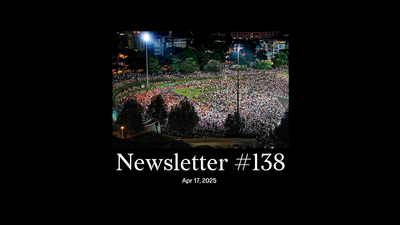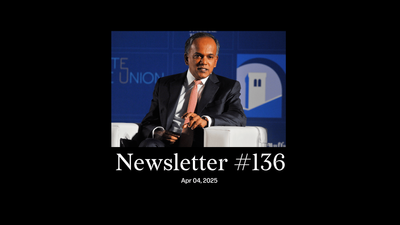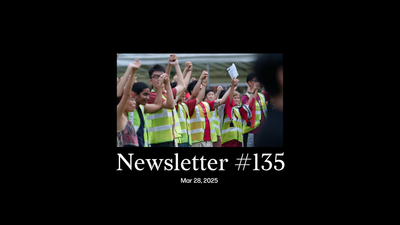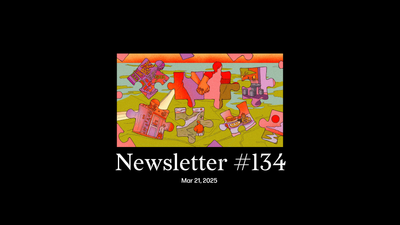Dear reader,
It’s been one of those weeks when we’re left gasping for air.
First, a shooting in a Bangkok mall, so close to home that we worry about friends who might have been there, and by a perpetrator so young that we’re left with a deep unease about modernity’s ills.
Then the carnage in Israel, so far away that we drift between apathy and conditioned biases—surely it’s the other side’s fault—and between warring factions so old that we’re left bemoaning the grisly path dependencies our ancestors set us on. (Should we blame them instead?)
At Jom, all this has translated into a rather timely, if unfortunate, coincidence with our essay of the week, “Is Singapore being used to finance wars?”, which we commissioned in May, around the time that the UN Special Rapporteur for Myanmar released a bombshell 56-page report.
“The Billion Dollar Death Trade: The International Arms Networks that Enable Human Rights Violations in Myanmar” implicated Singapore, and by extension all of us, in the ongoing war there. It alleged that US$254m (S$346m) worth of arms, raw materials and manufacturing equipment were shipped from Singapore to “the Myanmar military and Myanmar-based military suppliers” from February 2021, when the coup occurred, to December 2022. Some of the arms listed include “components for MiG-29 fighter jets” and “spare parts for K-8W trainer and light attack aircraft”.
In the essay, written by John Lee, the pen name for a London-based Singaporean, and me, we also examine Singaporeans’ supposed involvement in helping arm rogue regimes in Moscow and Pyongyang. Though these are cases that are currently being investigated by the Singapore government and others, the allegations thus far are damning. If indeed our open ports and capital markets are being abused to facilitate conflicts and wars around the world, it should be an issue of grave concern to all Singaporeans.
In the creation of this piece, there were two editorial issues of concern to us. The first was simply about whether to proceed. Did we have enough material for an essay? Or should we have held off until we could perform thorough investigative research? We decided to proceed, even with incomplete information, mainly because there are many urgent questions Singaporeans should be asking about our country’s moral responsibility, as an important global financial and trade node, to societies elsewhere. It’s Jom’s responsibility to shine a light on issues that some in the establishment might want us to forget.
The second was with the powerful illustrations by Eve Yeo, commissioned and guided by Charmaine. An early version may, for some viewers, have alluded to the state of Singapore itself funding illegal or unethical conflicts. Yet the essay’s argument is about rogue actors using Singapore for their illicit activities. We also decided against, in the spot image, showing Singapore dollars, with the image of Yusuf Ishak, our first president, in them. Among several objections we had internally is a factual one—US dollars is probably the currency of choice for arms traders.
Other editorial issues this week concerned two blurbs in Singapore This Week, our weekly opinionated digest. Faris Joraimi, our history editor, wanted to write about Israel and Palestine. Not an easy subject to handle, especially for Singaporeans, who, as Faris notes, grew up in an environment full of skewed perspectives on the conflict. The last time Faris and I engaged in this much wordsmithing was over a year ago, for my essay on Singapore’s national security policies, in which I wanted to write about the roots of—yes, our military relationship with Israel.
Waye and I generally have a lighter touch with Faris’s weekly blurb. They go out in his name because it’s meant to be a historian’s personal column. With his blurb this week, however, I had to get more involved. Given that this is the only real thing Jom will be saying about the issue, some readers might perceive it, not unfairly, as the company’s view.
One of the numerous issues we contended with was this line: “To be sure, the killing of civilians by either side must never be condoned.”
The initial version used “targeting” instead of “killing”. We decided that “targeting” would be letting Hamas and Israel off easily. Both of them, especially the latter in its current retaliatory campaign in Gaza, would argue that they aren’t “targeting” civilians. (Collateral damage, right? Oh, that delightful, dehumanising euphemism that assuages the consciences of warmongers everywhere.)
Our blurb on the rapper Drake and Singapore, meanwhile, inspired a conversation on whether we should republish a common epithet for African Americans, which was in Drake’s lyrics. Do we write it in full, or do we partially censor, for example, “n**ga”?
American publications we seek to emulate, like The New Yorker, don’t censor. Moreover, Jom republishes local, ethnic Indian slurs, like keleng kia, when relevant to the story (the tragic suicide of Uvaraja s/o Gopal, a police officer). Why not foreign ones?
The counter argument is that we may unwittingly enable Singaporeans to use the term without knowledge or context. The discursive mechanisms and instinctive conversational pushbacks are not as sophisticated here, as compared to the US, to guard against the N-word’s normalisation in everyday language.
Ultimately, we decided not to censor ourselves, but to include an editor’s note below the blurb, with a link to this very discussion. For those of you who’ve lasted till the end of this long newsletter, well, that’s just a little taste of the fun and intense week with words we’ve had at Jom. A big thanks to Faris, Jean, and my other colleagues for helping shape our editorial approach.
As always, we value your opinion. Do reply and share your thoughts on any issue, including our essay of the week, Faris’s blurb on Israel and Palestine, and our reproduction of Drake’s exact lyrics.
We’re building Jom together. And you’ll help us improve.
Jom fikir,
Sudhir Vadaketh
Editor-in-chief, Jom
p.s. last call for our next “Jom cakap”, at 7pm this coming Monday (October 16th), at The Projector, featuring Shibani Mahtani of The Washington Post, Karishma Vaswani of Bloomberg Opinion, and Sue-Lin Wong of The Economist. We still have some tickets left, so get yours now. See you soon!
If you've enjoyed our newsletters, please scroll to the bottom of this page to sign up to receive them direct in your inbox.






